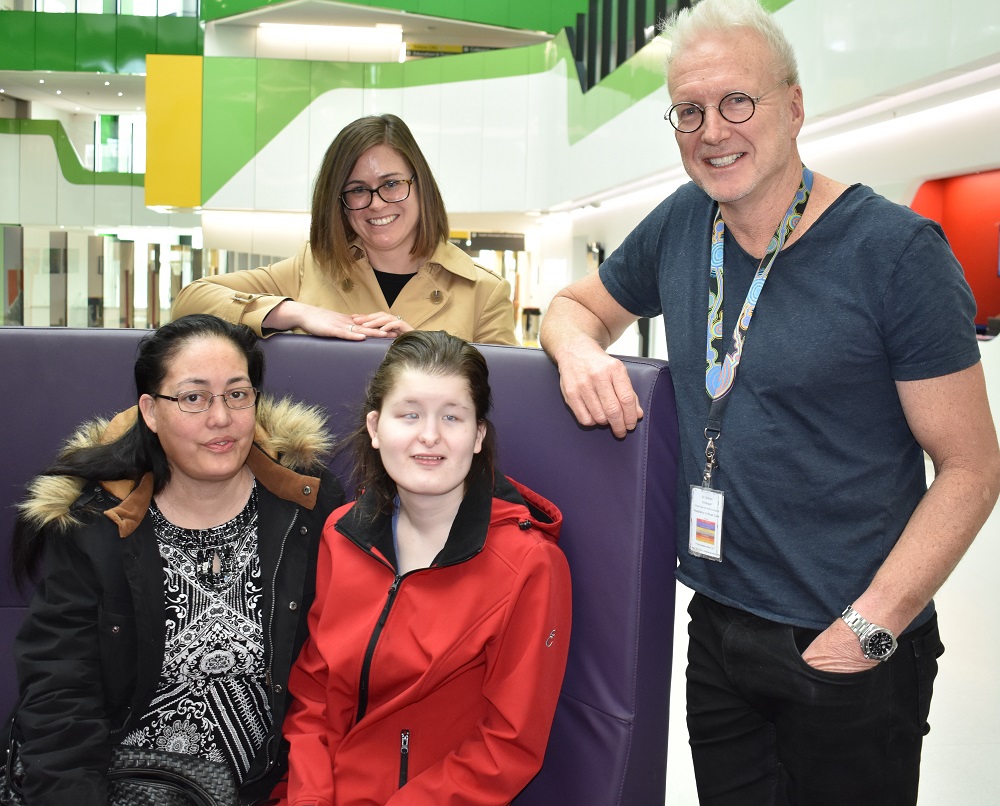Annabelle helps our critical care team lead the way on landmark trial
 Members of the PCH PROSpect study team (L-R) Arielle Jolly, Dr Simon Erickson pictured with Marina and Annabelle Carr
Members of the PCH PROSpect study team (L-R) Arielle Jolly, Dr Simon Erickson pictured with Marina and Annabelle Carr
The sickest patients at Perth Children’s Hospital (PCH) are the focus of a landmark international clinical trial.
PCH is the lead Australasian site for the international PROSpect study, the Prone and Oscillation Paediatric Clinical Trial, which is the biggest paediatric study of its kind in the world.
The trial will benefit patients who require ventilation due to acute and severe respiratory failure. The study is aiming to identify which combination of ventilation (conventional or high frequency oscillation) and positioning (either supine or prone position) is most effective in caring for these patients.
Head of Department Paediatric Critical Care at PCH Dr Simon Erickson said he was proud of the success his team had achieved with this trial.
“This achievement reflects the dedication of our staff and our commitment to improving the outcomes of our patients,” Dr Erickson said.
Fifteen-year-old Annabelle Carr participated in this study when she became acutely unwell last year. She spent a prolonged period in ICU after emergency surgery and then developing sepsis which prompted further surgery. Her mum Marina consented to be part of the PROSpect study during this time despite the enormous stress of her daughter’s illness.
Marina’s support for the study was partly related to the amount of time Annabelle had spent in intensive care over her lifetime due to undergoing more than 80 surgical procedures.
The procedures relate to her oculodentodigital dysplasia, an extremely rare genetic condition that affects many parts of the body particularly her eyes, teeth and fingers.
“It was hard to see Annabelle lying on her stomach once she was part of the trial but we were pleased at how quickly she recovered and the ventilator was removed.
“Despite the stress at the time we knew participating in this study would help other patients in the future,” Mrs Carr said.
Annabelle has now fully recovered from this experience and is pursuing her passion for writing with renewed vigour.
Dr Erickson said having a child in intensive care is understandably a distressing time for families, so members of the study team spend a significant amount of time explaining the trial with them.
“Ultimately research like this gives parents peace of mind about the value of research and our efforts to contribute to the latest evidence-based treatment to improve the care and outcomes of our patients,” Dr Erikson said.

